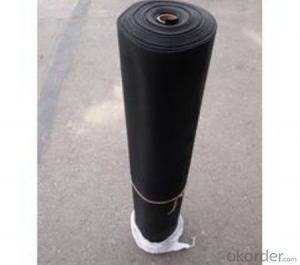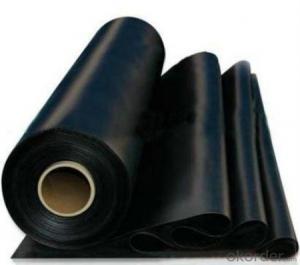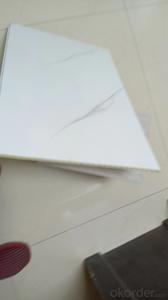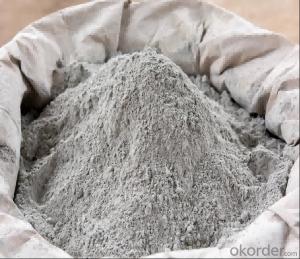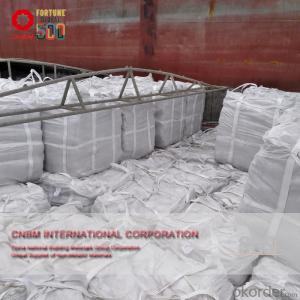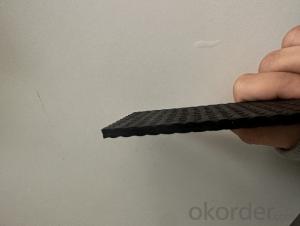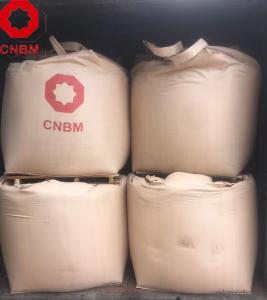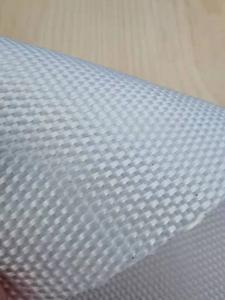EPDM Membrane Vulcanization Thickness 1.2MM for Waterproof System
- Loading Port:
- Qingdao
- Payment Terms:
- TT or LC
- Min Order Qty:
- 8000 m²
- Supply Capability:
- 100000 m²/month
OKorder Service Pledge
OKorder Financial Service
You Might Also Like
EPDM Membrane Vulcanization 1.2 mmfor Waterproof System
Description Of EPDM Membrane Vulcanization1.2 mm:
1. EPDM 1.2 mm membrane is made from ternary ethylene-propylene rubber, which is for waterproofing of exposed and non-exposed applications.
2. EPDM 1.2 mm membrane production adopts the world-advanced equipment of cold feeding extrusion and continuous vulcanization technology.
3. EPDM 1.2 mm is of high elasticity among high polymer waterproof materials and becomes a world-popular waterproofing material.
Main Features of EPDM Vulcanization EPDM Membrane1.2 mm:
1. Excellent physical and mechanical performance
2. High tearing resistance
3. Good deformation adaptability
4. High puncture resistance
5. High aging resistance
6. UV resistance
Specifications of EPDM Vulcanization Membrane1.2 mm:
Material | Ternary Ethylene-Propylene rubber |
Size | 1.2m (width)*20m (length) or customized, weldable type 2.05m or 4m width |
Thick | 1.2mm, 1.5mm, 2.0mm |
Type | Vulcanized |
Pattern | Non-reinforced (homogeneous) |
Certificate | ISO9001/14001 |
Applications of EPDM Rubber Waterproof Membrane1.2 mm:
1.Roofs, Basement, Toilets
2. Industrial and civil building waterproofing
3. Geosynthetic liner for swimming pool, channels, irrigation system
4. Especially suitable for projects with high requirements in durability, anti-corrosion and deformation.
IMages of EPDM Vulcanization Membrane:
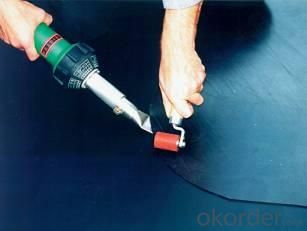
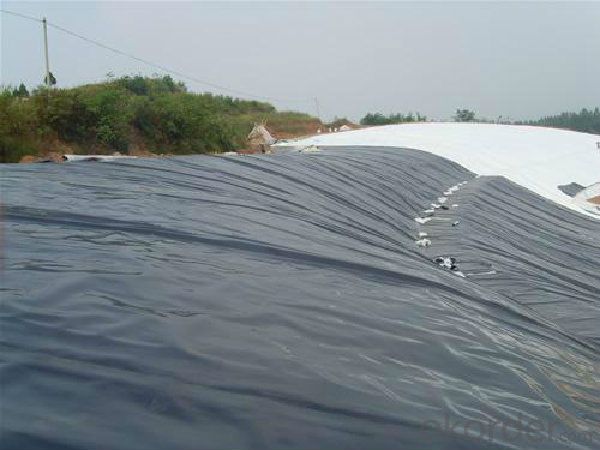
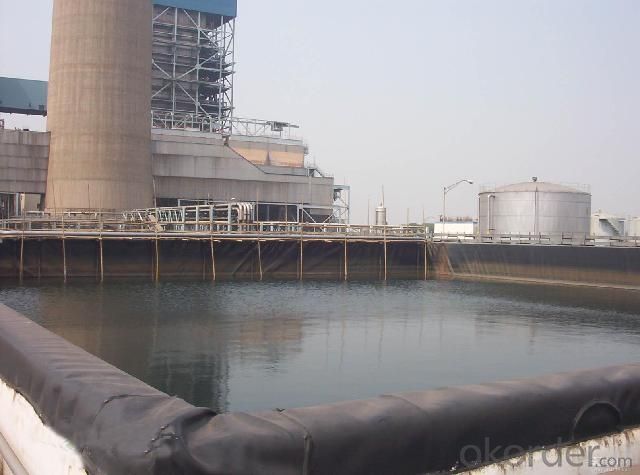
FAQ:
1. What are we supplying?
We are specialized in producing Colorful Asphalt Roof Shingle, SBS/APP modified bitumen waterproof membrane, Self adhesive bitumen waterproof membrane, PVC waterproofing membrane, EPDM rubber roofing membrane, Single Component Polyurethane Waterproof Coating, and Spray Polyurea Waterproof Coating
.
2. How Many years experience do we have?
We have been exported to more than 15 countries in the past 10 years.
3. How long do we usually reply your request?
We always reply our customer within 12 hours.
- Q:Can a waterproofing membrane be used on brick block surfaces?
- Yes, a waterproofing membrane can be used on brick block surfaces. Waterproofing membranes are commonly used to provide a barrier against water infiltration and to protect building structures from moisture damage. When applied correctly, a waterproofing membrane can effectively seal brick block surfaces, preventing water penetration and ensuring the longevity and durability of the structure. The membrane acts as a protective layer, preventing water from seeping into the bricks and causing potential issues such as deterioration, cracking, or mold growth. It is essential to select a waterproofing membrane that is specifically designed for brick block surfaces and follow the manufacturer's instructions for proper application. Additionally, it is advisable to consult a professional contractor experienced in waterproofing to ensure the best results and long-term performance.
- Q:Can a waterproofing membrane be used for a plaza deck?
- Yes, a waterproofing membrane can be used for a plaza deck. Waterproofing membranes are commonly used in construction projects to create a barrier against water infiltration, protecting the underlying structures from water damage. Plaza decks, which are elevated outdoor spaces often used for public gatherings or recreational activities, can benefit from a waterproofing membrane to prevent water from seeping into the deck and potentially causing structural issues or compromising the integrity of the deck.
- Q:Can a waterproofing membrane be used in hospitals or healthcare facilities?
- Yes, a waterproofing membrane can be used in hospitals or healthcare facilities. In fact, it is highly recommended to use waterproofing membranes in these settings due to the critical need for maintaining a clean and hygienic environment. Waterproofing membranes are typically applied on floors, walls, and ceilings to prevent water or moisture infiltration, which can lead to mold growth, deterioration of building materials, and compromise the structural integrity of the facility. By using waterproofing membranes, healthcare facilities can effectively protect against water damage, facilitate easier cleaning and maintenance, and prevent the growth of bacteria and other harmful microorganisms. Additionally, waterproofing membranes can also help in managing moisture levels, thereby reducing the risk of slips and falls, which is especially crucial in areas where patients, staff, and visitors frequent. Overall, waterproofing membranes are a valuable asset in ensuring the safety, durability, and cleanliness of hospitals and healthcare facilities.
- Q:Can a waterproofing membrane be used on sloped surfaces?
- Yes, a waterproofing membrane can be used on sloped surfaces. In fact, it is highly recommended to use waterproofing membranes on sloped surfaces to prevent water infiltration and potential damage. The membrane is designed to create a barrier against water, and when properly installed, it can effectively protect sloped surfaces such as roofs, balconies, or even retaining walls. The membrane is typically flexible and can conform to the shape of the slope, ensuring full coverage and a watertight seal. Additionally, some waterproofing membranes have additional features like self-adhesive properties or reinforcement layers specifically designed for sloped surfaces, further enhancing their effectiveness. Overall, using a waterproofing membrane on sloped surfaces is an excellent way to ensure long-term protection against water damage.
- Q:Can a waterproofing membrane be used in areas with high water pressure?
- Yes, a waterproofing membrane can be used in areas with high water pressure. Waterproofing membranes are designed to withstand and prevent water penetration, making them suitable for use in areas where there is high water pressure. However, it is important to ensure that the membrane chosen is specifically rated and designed to handle the specific water pressure levels in order to ensure its effectiveness and durability.
- Q:Can waterproofing membranes be applied on roofs?
- Yes, waterproofing membranes can be applied on roofs. In fact, they are commonly used in the construction industry to provide an extra layer of protection against water infiltration. These membranes are typically made of synthetic materials such as PVC, TPO, or EPDM, which are highly resistant to water and can effectively prevent leaks and water damage on roofs. The application of waterproofing membranes on roofs is a proven method to enhance the longevity and durability of the roofing system, especially in areas prone to heavy rainfall or extreme weather conditions. Additionally, waterproofing membranes are flexible and can be easily installed on various types of roofing materials, including concrete, metal, or asphalt shingles. Therefore, if you want to ensure a watertight roof and protect your property from water-related issues, using waterproofing membranes is a reliable and effective solution.
- Q:Are there any specific considerations for installing a waterproofing membrane on metal surfaces?
- Yes, there are specific considerations for installing a waterproofing membrane on metal surfaces. When installing a waterproofing membrane on metal surfaces, it is important to consider the compatibility of the membrane with the specific type of metal being used. Some waterproofing membranes may not adhere well to certain types of metal surfaces, so it is necessary to choose a membrane that is specifically designed for use on metal. Additionally, it is important to ensure that the metal surface is properly prepared before installing the waterproofing membrane. This may involve cleaning the surface thoroughly to remove any dirt, grease, or other contaminants that could interfere with the adhesion of the membrane. It may also be necessary to prime the metal surface to improve adhesion. Another consideration is the expansion and contraction of the metal surface due to temperature changes. Metal surfaces can expand and contract significantly with temperature variations, and this movement can potentially affect the performance of the waterproofing membrane. Therefore, it is important to choose a membrane that can accommodate the movement of the metal without compromising its waterproofing capabilities. Furthermore, it is essential to consider the type of waterproofing membrane being used. There are different types of membranes available, including liquid-applied membranes, sheet membranes, and peel-and-stick membranes. Each type of membrane has its own installation requirements, so it is crucial to follow the manufacturer's guidelines to ensure proper installation on metal surfaces. Lastly, it is important to consider any additional factors that may affect the performance of the waterproofing membrane on metal surfaces. These factors can include exposure to UV radiation, potential for corrosion, and compatibility with other building materials or systems. Taking these considerations into account will help ensure a successful and long-lasting installation of a waterproofing membrane on metal surfaces.
- Q:Are waterproofing membranes resistant to diesel fuel?
- Typically, diesel fuel is not resisted by waterproofing membranes. Being a petroleum-based substance, diesel fuel can harm various types of waterproofing materials. The membrane's integrity can be degraded, reducing its ability to prevent water from penetrating. Consequently, it is crucial to avoid exposing waterproofing membranes to diesel fuel since it can compromise their effectiveness and durability. If there is a chance of diesel fuel coming into contact with the membrane, it is advisable to employ extra protective measures like chemical-resistant barriers or a secondary containment system to avert any potential harm to the waterproofing membrane.
- Q:Can a waterproofing membrane be used on swimming pool decks?
- Yes, a waterproofing membrane can be used on swimming pool decks. It helps to prevent water damage and leakage, ensuring durability and longevity of the deck.
- Q:Are waterproofing membranes resistant to chlorine exposure?
- The resistance of waterproofing membranes to chlorine exposure can vary. Certain membranes are designed to withstand chlorine and are commonly used in areas like pool decks or water treatment facilities where chlorine exposure is expected. These membranes are typically made with materials like PVC or TPO that naturally resist chlorine and can endure prolonged exposure without significant damage. It is important to be aware that not all waterproofing membranes are resistant to chlorine. Some membranes, particularly those made with materials like EPDM or bitumen, may not hold up as well against chlorine and may deteriorate or sustain damage with extended exposure. To ensure a waterproofing membrane lasts and performs well in a chlorine-rich environment, it is vital to choose a membrane specifically designed and tested for chlorine resistance. Seeking guidance from a waterproofing professional or manufacturer can assist in determining the most suitable membrane for the particular chlorine exposure conditions.
1. Manufacturer Overview |
|
|---|---|
| Location | |
| Year Established | |
| Annual Output Value | |
| Main Markets | |
| Company Certifications | |
2. Manufacturer Certificates |
|
|---|---|
| a) Certification Name | |
| Range | |
| Reference | |
| Validity Period | |
3. Manufacturer Capability |
|
|---|---|
| a)Trade Capacity | |
| Nearest Port | |
| Export Percentage | |
| No.of Employees in Trade Department | |
| Language Spoken: | |
| b)Factory Information | |
| Factory Size: | |
| No. of Production Lines | |
| Contract Manufacturing | |
| Product Price Range | |
Send your message to us
EPDM Membrane Vulcanization Thickness 1.2MM for Waterproof System
- Loading Port:
- Qingdao
- Payment Terms:
- TT or LC
- Min Order Qty:
- 8000 m²
- Supply Capability:
- 100000 m²/month
OKorder Service Pledge
OKorder Financial Service
Similar products
New products
Hot products
Related keywords
